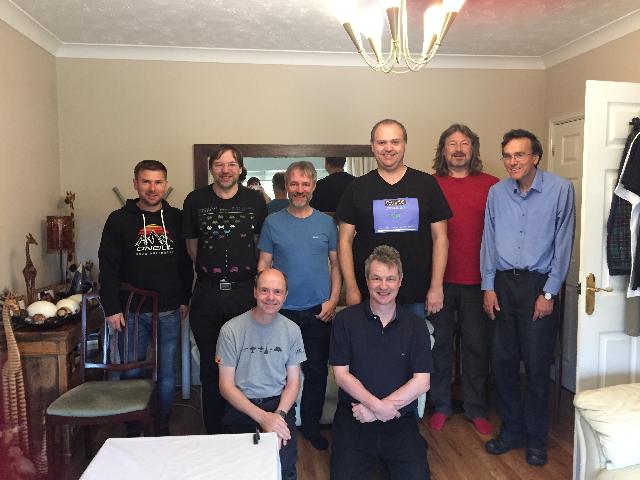

Location was my place in Southampton, UK. It was on Saturday 12th October.
Attendees were Tony, Mark, Jim, Claus, Mike, Bill, Stephen and myself :-

Dave was in Tokyo for the rugby, so we Facetimed him and impressed him with our firm grasp of conversational Japanese (ie: the single word 'Konichi-wa'). Perhaps typhoon Hagibis was just Karma for missing Memofest... Paul also couldn't attend, and we wish him well so he can next time. Martin has changed jobs recently and couldn't attend this time either.
The venue had a selection of modern and retro (ie: MTX) computing resources, and everyone piled in :-
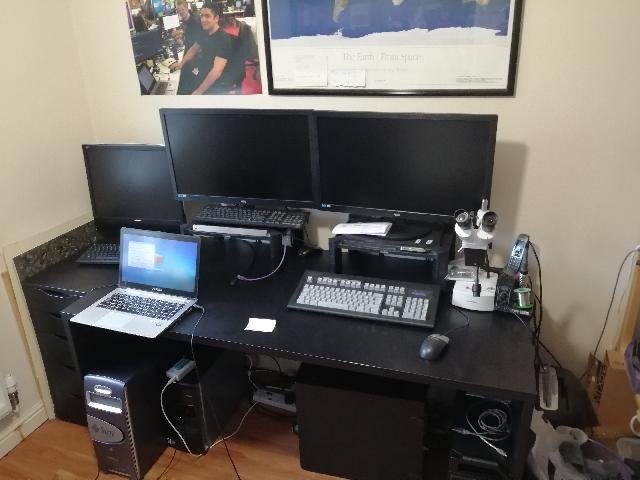
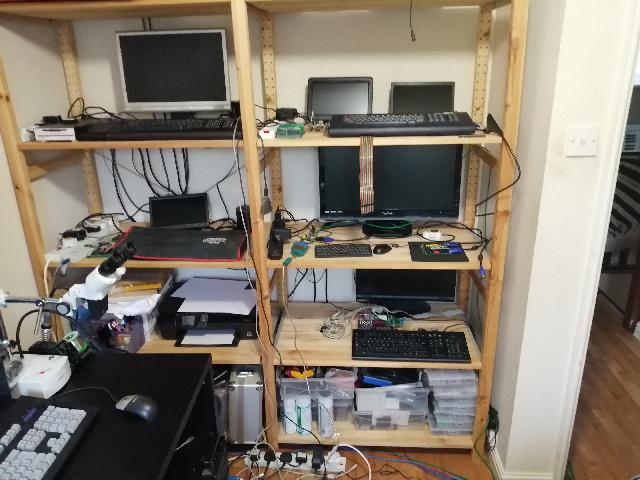
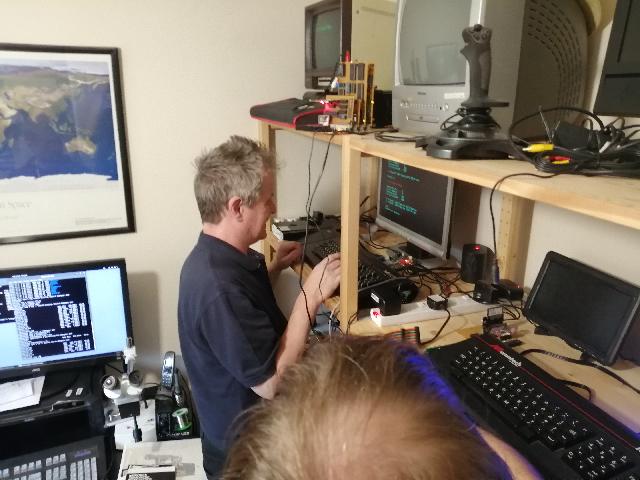
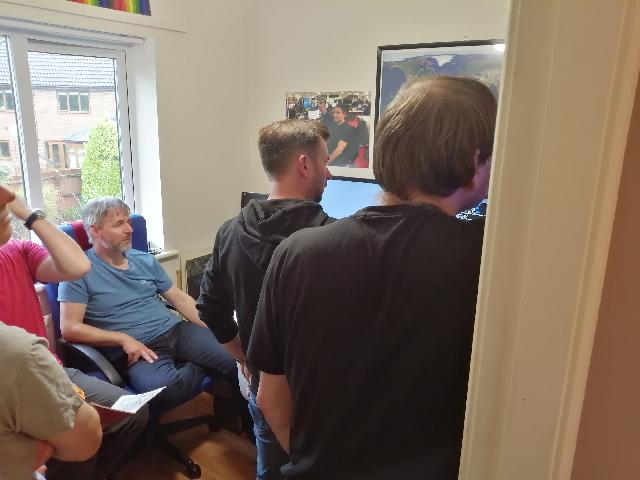
The first exhibit was a new MTX ROM Card, along with a .COM to ROM program (for converting CP/M .COM files to ROM images), a Disk to ROM program (for converting CP/M disk images to compressed ROM images), an enhanced CP/M Boot ROM (which can treat a compressed ROM image as its disk), and an enhanced SDX BASIC ROM (which can do the same). As the ROM card actually provides content in two ROM slots, Mike suggested it be named "The Two Rommies". The ROM card is somewhat like Martin's MAGROM, but without his nice "games menu" software, and with an alternative approach. Each attendee was given a card. Here we see a ROM card behaving as disk, booting CP/M :-
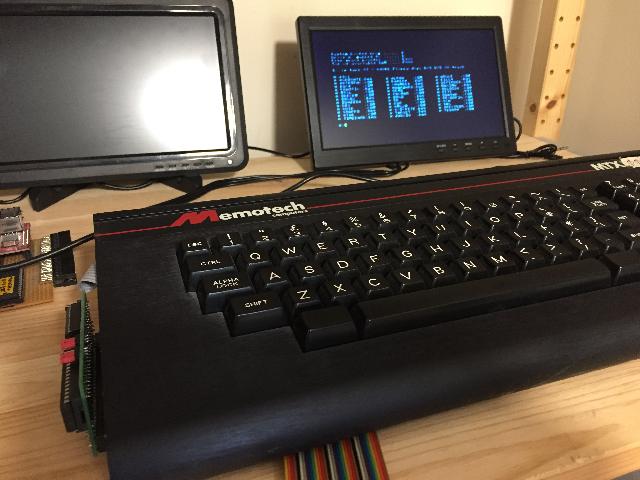
A new MEMU was released, including the ability to set each ROM slot to have various numbers of subpages. This feature was added so I can test the MTX ROM Card related software described above). Important: The SDX support in MEMU now uses ROM 5 by default, not ROM 3.
Bill showed us his latest Raspberry Pi MTX.
This is running off of bare metal, using the "Circle" library.
There were plenty of configuration options.
We even saw loading a game from a .wav file :-
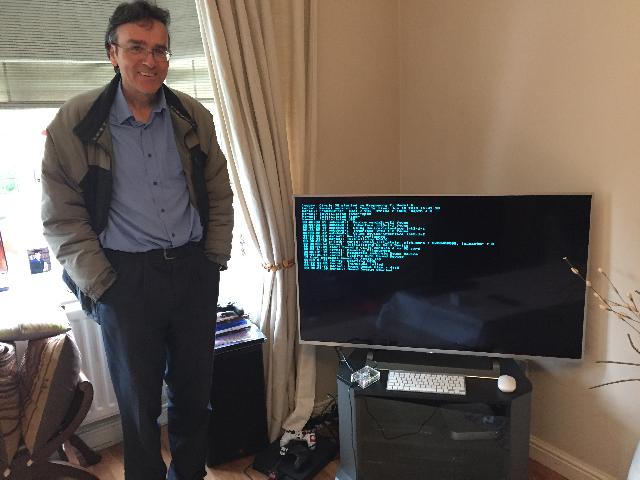
REMEMOTECH r3 was revealed. This has a daughter card, making full use of all GPIO ports on the Altera DE1. The daughter board provides ROM 2 support (8 subpages), centronics port, a better quality 2nd VGA port and port 7 support. In addition, there is now support for a subset of the DART, allowing communication over the serial port using programs like CONTACT. Now that the hardware supports serial communication, the Boot ROM now includes the ZMON Remote Command mode. Obviously to use these new hardware features, a new bitstream must be programmed into the Altera DE1. As Martin has a REMEMOTECH, a daughter board had been sent to him. Another will be sent to Dave.
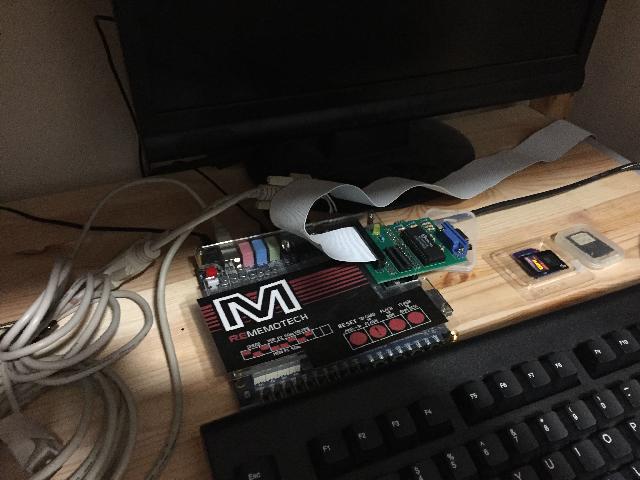
We ate a buffet lunch. The cake was slightly more 3D than the previous year, as it had a HexTrain theme. None of us can work out where the cake maker got the idea for the little circular loop of track. Still, it tasted good :-
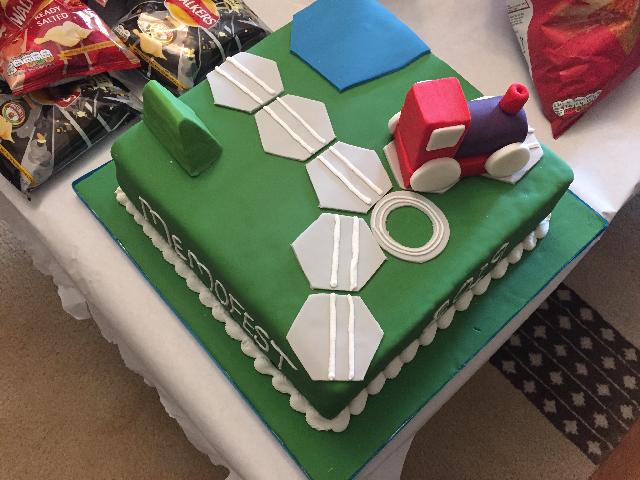
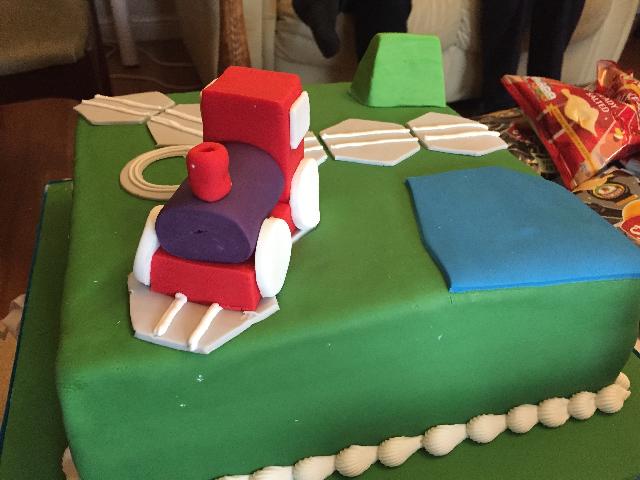
Claus has been working porting "EXOIDE" to the MTX, and this port is very nearly complete, so we used it for the game contest. I started off well, having played it once the previous day. Other attendees couldn't match my score, but when Claus tried, he completely obliterated any of our scores. Clearly he'd had lots of practice during his porting activities...
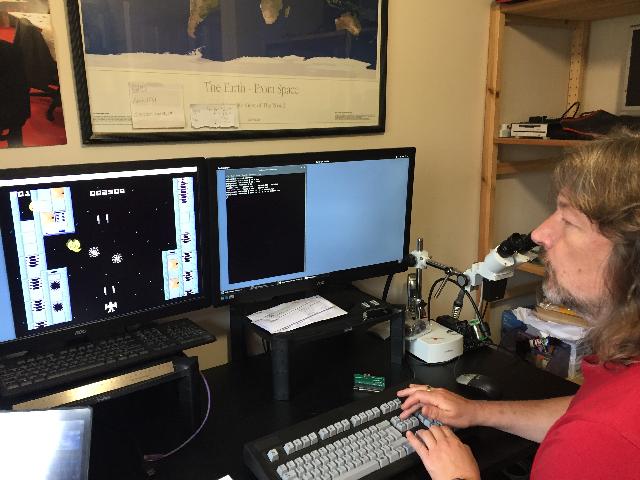
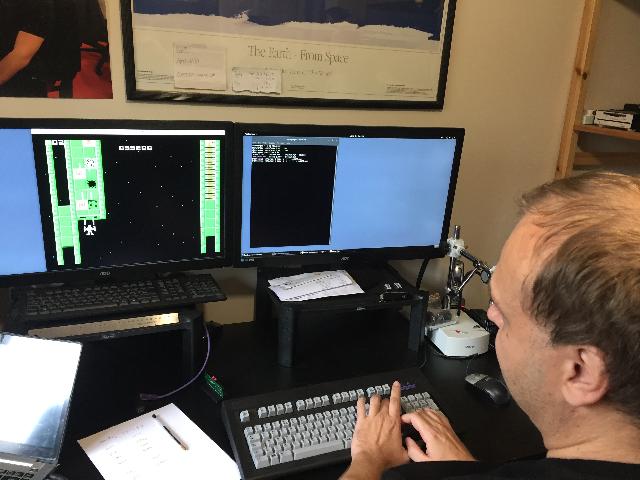
Although Martin couldn't attend, prior to the event, he sent a new ROM image for MTXPlus+ and a disk image. He has implemented some of the code needed for BBC BASIC, including the VDU codes. We worked out which parts of the ROM image are visible in which parts of the MTXPlus+ memory space, and were able to show this working on MEMU and real MTXPlus+ hardware. The MTXPlus+ even cooperated and gave a nice stable video signal :-
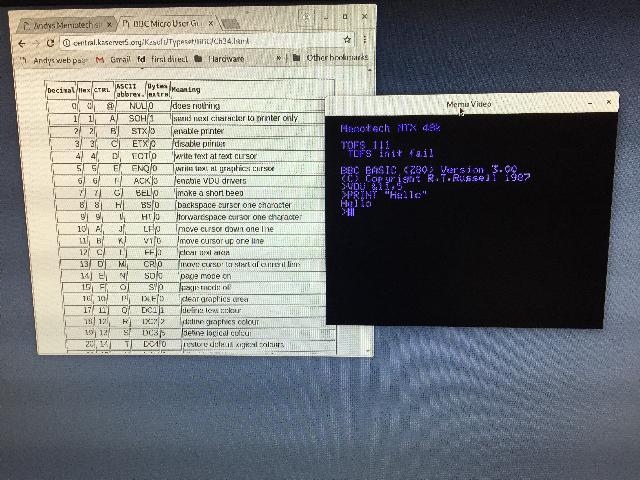
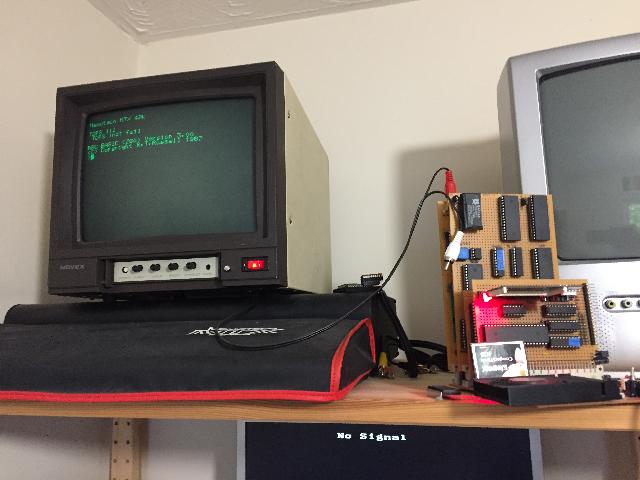
Next was the VGA Videowall. This can be driven by the original MTX software, running on MEMU, or from a real MTX, or from REMEMOTECH (courtesy of the new serial port support). It can also be driven from DOS, using the newer software. The DOS software has now been ported to Linux, and looks like this :-
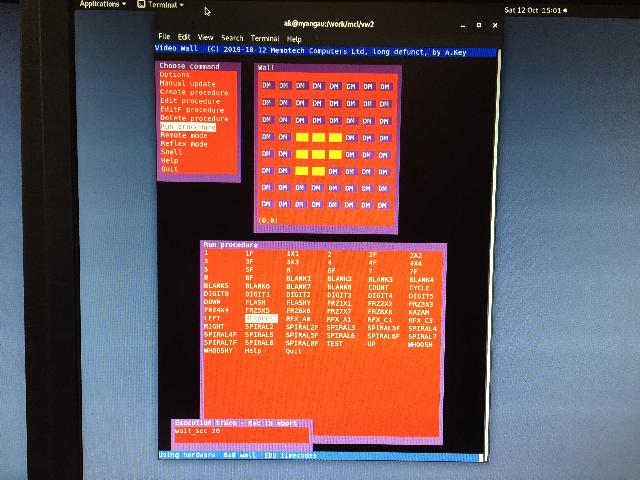
Claus had wanted to see a new year countdown on a Video Wall, and I know he likes Weird Science. So a Video Wall program was shown with a countdown, whilst a Raspberry Pi used VLC to play the bit of Weird Science where they create Lisa. Picture quality was recognisable but not brilliant :-
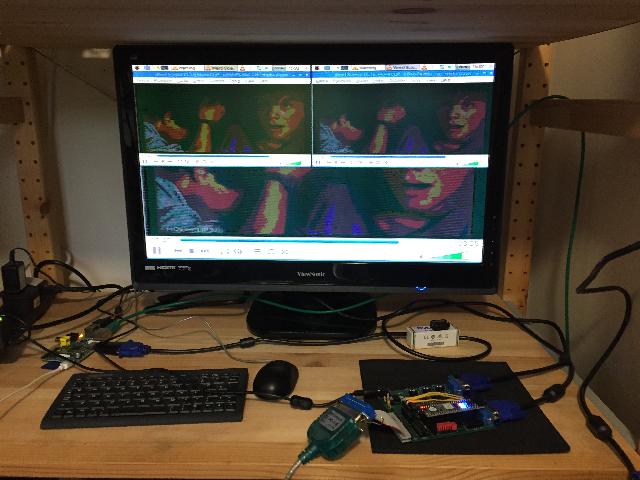
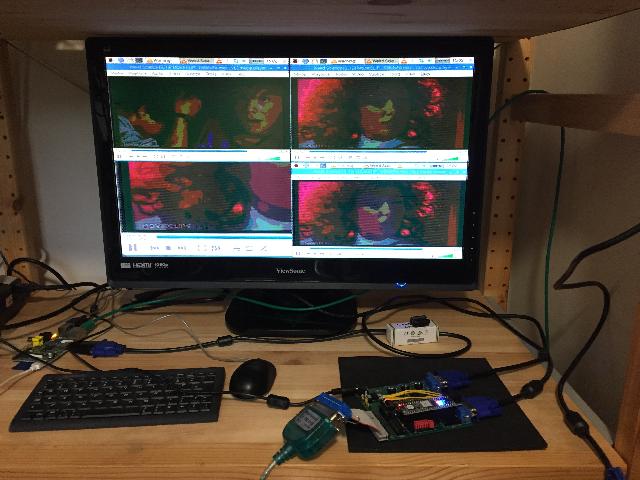
Claus has been collaborating with Oscar Toledo, and persuaded him to port Mecha 8 to MTX, shown here :-
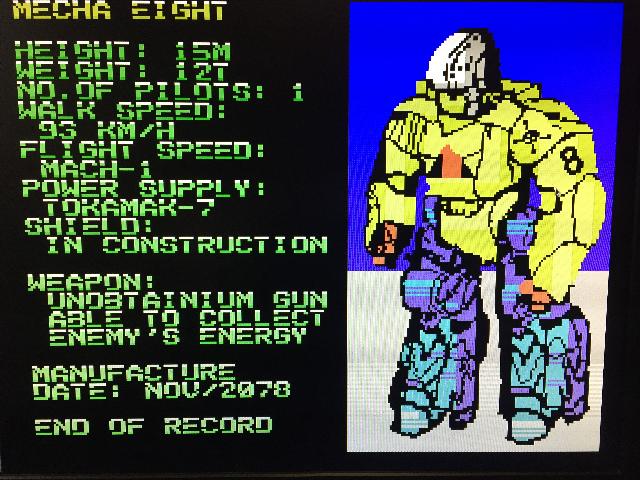
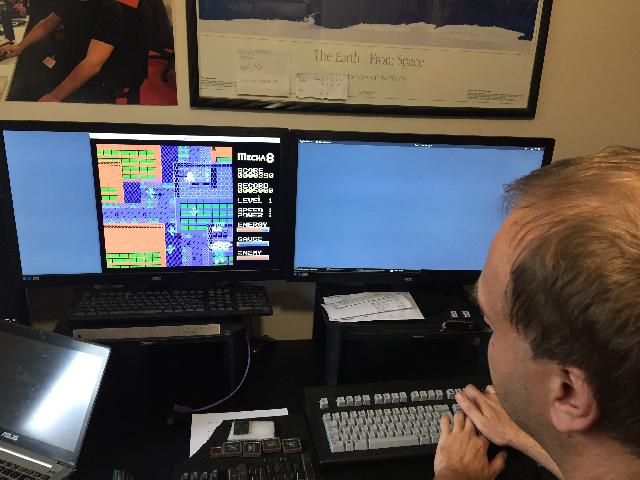
Tony brought some 5.25" floppies he hoped we could read, but alas all were unreadable (at least by my SDX drive) :-
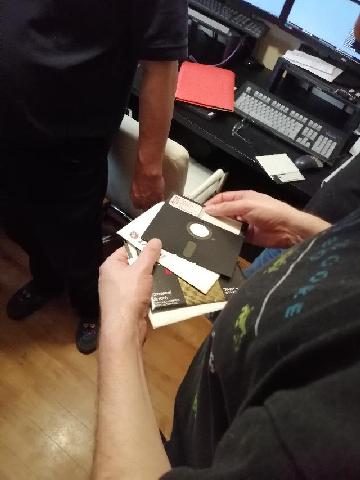
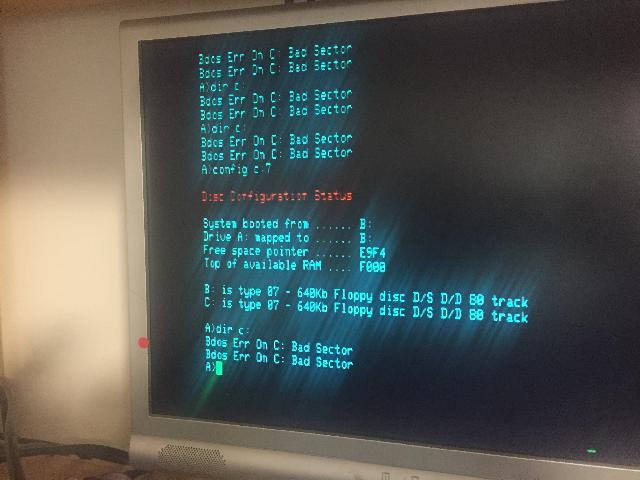
Jim and Tony brought their sketch books within which they designed Pothole Pete and Son of Pete. Lots of squared paper and level and sprite designs. I think many of us had such books, and it brough back memories seeing how we did this again :-
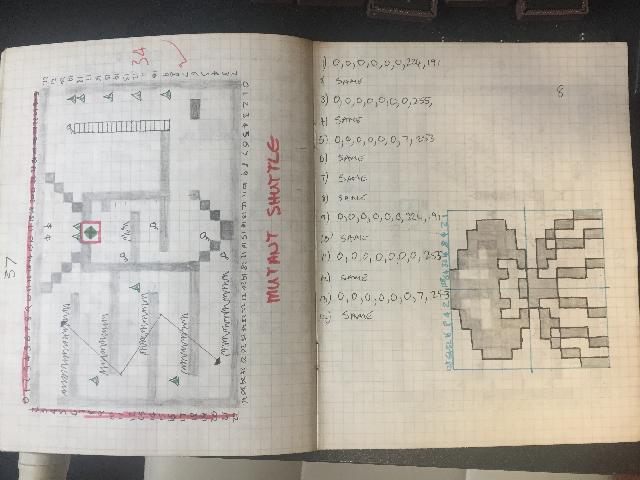
Claus had a tape image he couldn't read, and Bill happened to have his TapeView tape decoder. This is quite a sophisticated tool, as it can process the raw wave data in various ways. Bill managed to extract a lot content, in the form of a BASIC listing, which we tried to auto-type into MEMU. It later transpired that the program also had some NODDY in it which was problematic :-
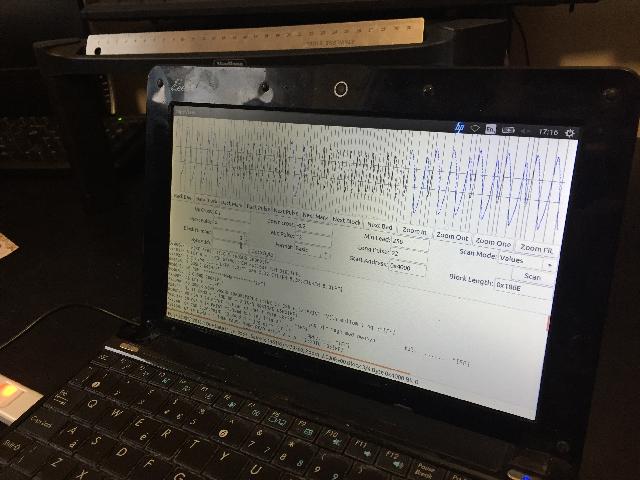
We'd been talking about Son-of-Pete level design, and so I used Andys Binary Folding Editor to show the levels inside SMG. Stephen had not seen HexTrain before, so I also showed that, and used BE poke around inside it :-
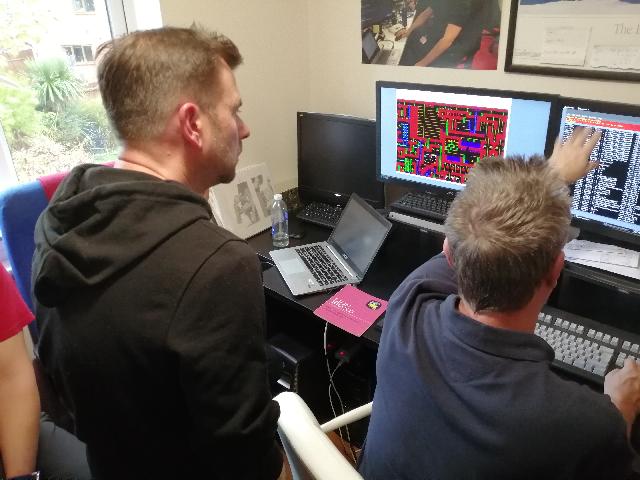
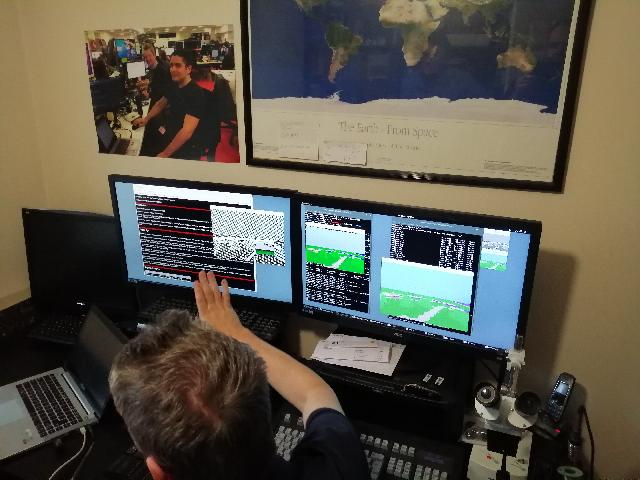
As often happens, Claus had designed a T-shirt. Very fetching...
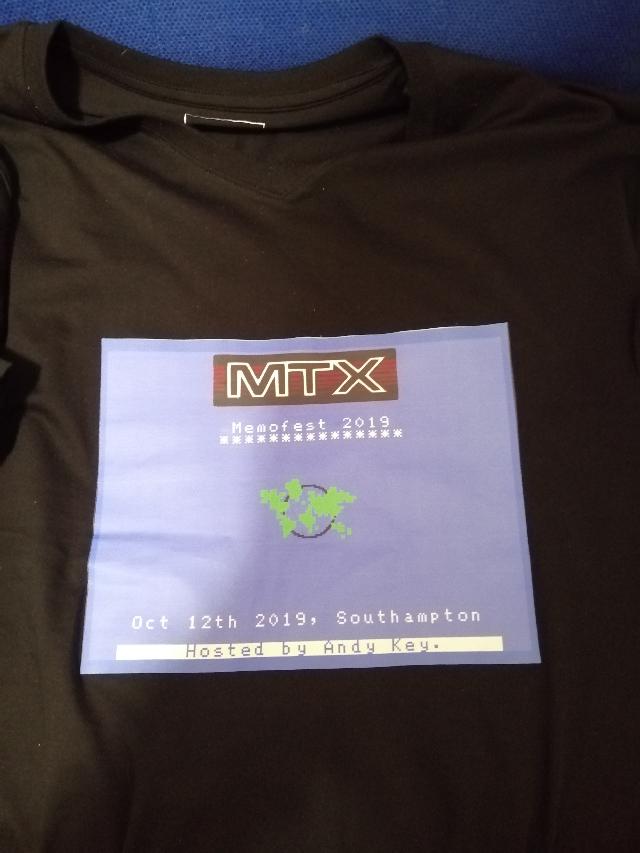
There was lots of interesting discussion around the history of 8-bit computing, and clearly Mark and Stephen know a lot about this.
Stephen, Bill and myself offered to share our retro chips collections, but it turns out that Lez has flooded the market, and we all have far more than we need.
We didn't get to see Bill's new assembler (written in Python). Someone has a Memotech MTX with certain alternate keys not working, which is probably a fault in the keyboard matrix, but for some reason we didn't get around to looking at this.
We wondered where Memofest 2020 might be held. TNMOC?
A great day, thanks to everyone who attended!